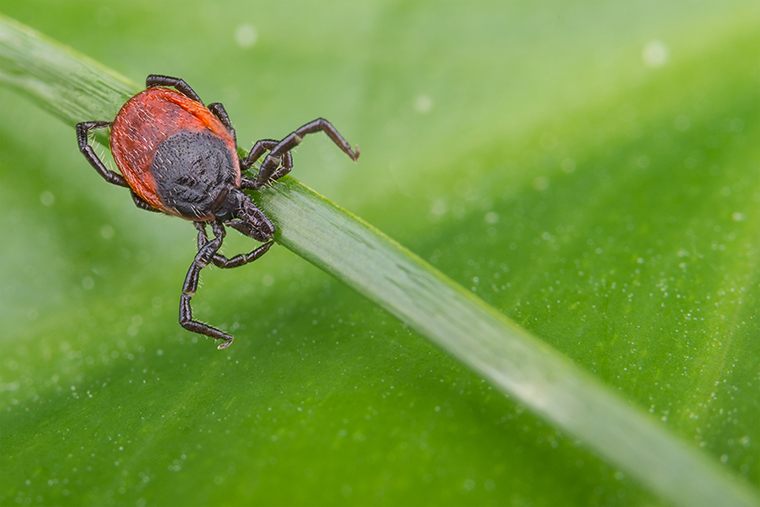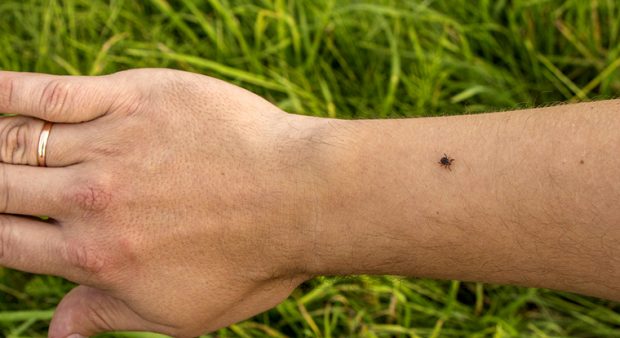
Dr. Monir Taha, associate medical officer of health at Ottawa Public Health, has confirmed the Ottawa region is considered an “at risk area” for Lyme disease — and has been for the past three years.
This means the chances are better than one-in-five that any black-legged tick (deer tick) is carrying the bacteria that causes Lyme disease. It also means anyone who has had a tick attached for more than 24 hours — or one that appears to be engorged or semi-engorged from a blood meal — should not wait to be tested, but see their doctor right away for a single injection of antibiotics.
Put ticks in a bag
It is also recommended that the tick be placed in a plastic bag or glass jar for identification, since dog ticks don’t carry Lyme disease.
A single shot of antibiotics, if received within 72 hours, may be all that is necessary. Although the tick may not carry the disease, American physicians are now recommending preventative treatment before diagnosis.

Dr. Taha said,” We would like to emphasize prevention over cure. It may be obvious that outdoors people can’t always stick to the trails and avoid long grasses where black-legged ticks may be found, but long pants tucked into socks, and a repellent with DEET, and a full body inspection before a shower are reasonable precautions, and every first aid kit should have a pair of fine-pointed tweezers to pull off the creatures slowly and without twisting. We don’t offer tick keys anymore.”






Leave A Comment